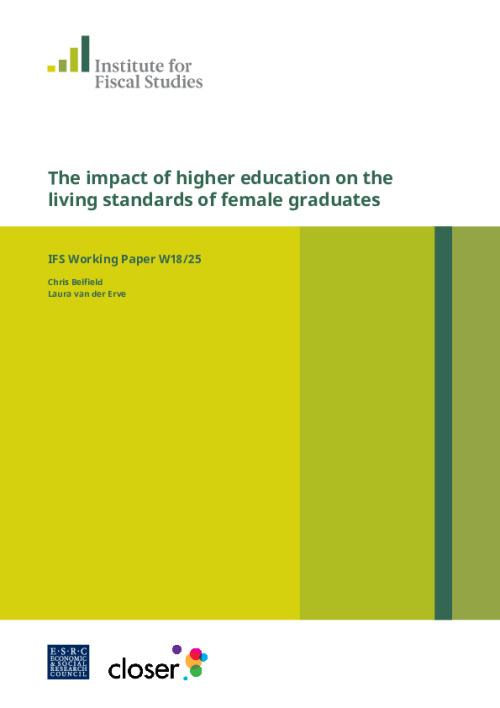There have been many studies of the impact of higher education (HE) on the wages and earnings of graduates. However, for working women, the variation in wages only explains 30% of the variance in net family income. To understand the overall impact of HE on the living standards of female graduates, we explore the wider impact of HE. We exploit the rich cohort study data in the UK to show that, for women, acquiring HE quali cations increases net family income by around 20%. We fi nd that this increase is driven by higher wages, more working hours and assortative mating, which drives higher partner earnings. We show that the impact on women's own earnings is more important in their early 30s but the role of assortative mating becomes increasingly important at older ages. We compare two cohorts of women born 12 years apart and we show that the overall impact of HE on incomes has remained relatively unchanged. The impact on female labour supply has increased slightly, but this has been counteracted by a smaller wage effect. The role of assortative mating has become no less important. These results shed new light on the benefi ts for women of pursuing HE in the context of ever increasing participation rates.










